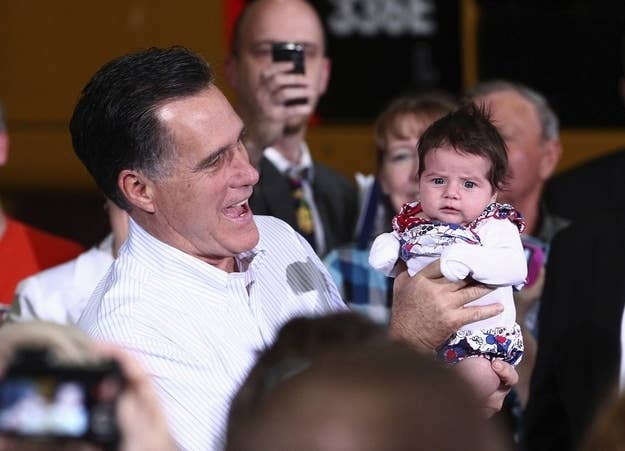
In 2006 the Massachusetts Department of Public Health sought to become the first state in the nation to ban giveaways women typically receive after giving birth. The gifts were generally a bag, sponsored by the baby formula companies, that contained infant formula along with coupons and other various items for newborns. The Department of Public Health contended they were part of a corporate effort to stop women from breastfeeding their newborns and that breastfeeding was the healthier option.
Romney sought to make sure women had full access to those parting gifts given when they left the maternity ward and took issue with the Department's decision. The Romney Administration argued the issue was not one of health, but of choice, and requested that the issue be discussed more broadly before any decision was made.
Romney's spokesmen at the time and current campaign advisor Eric Fehrnstrom said the decision was about freedom of choice. "We're not disputing the health benefits of breast-feeding, but we think that new mothers should make that choice," Eric Fehrnstrom said. "If they choose to bottle-feed, they should be supported in that decision." Fehrnstrom also contended there were no meetings between the Administration and formula companies.
Romney attacked the decision by the Department of Public Health as an intrusion of big government saying "I'm not enthusiastic about the heavy arm of government coming in and saying, 'We think we know better than the mothers and we are going to decide that they can't get free formula when it comes as a welcome home kit from the suppliers of formula with Q-tips, baby lotion and so forth. Let's let the moms decide."
Some opponents of the decision, however, saw the issue as a sell out by the Romney Administration to corporate interests. Dr. Melissa Bartick, chairwoman of the Massachusetts Breast-feeding Coalition told the Boston Globe "this has nothing to do with freedom of choice; of course, women are free to feed their babies however they would like. What the marketing does is undermine that choice by setting them up for breast-feeding failure." Adding ''corporate interest is really the only political constituency here."
The Coalition soon began running ads, and circulating a petition, against the Romney Administration document.
As the issue was discussed, many hospitals began to do away with the gift bags on their own. Brigham and Women's Hospital, the hospital in Massachusetts with the busiest maternity ward, ditched the gifts two weeks before the Romney Administration asked the Health Department to review their decision. Another state hospital planned to do away with the freebies by summer.
Supporters of banning the bags referred to studies on the benefits of breastfeeding, along with the high costs — as much as several thousand dollars of year — of baby formula.
The Romney Administration said a small number of vocal critics were inflating the issue.
"No one is seeking to end those practices," Fehrnstrom said. "Yet there is a very vocal minority of breast-feeding advocates who want to take a punitive approach with mothers who choose formula."
